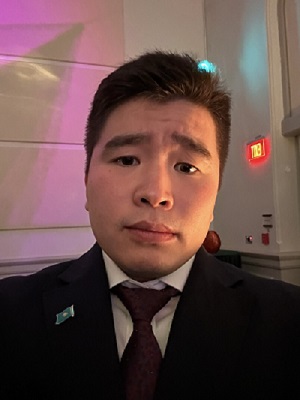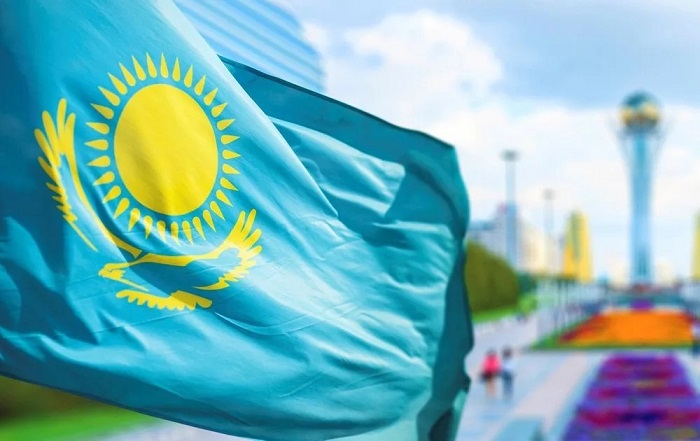Currently, there is significant confusion among many citizens of Kazakhstan regarding the state ideology and its genuine objectives in shaping contemporary society. As I have previously articulated, there appears to be an effort within our society to construct a monoethnic state, thereby distorting our historical narrative. However, this discussion will center specifically on the concept of “New Kazakhstan.” What does this term genuinely signify?
Is it a novel ideology or merely hollow populism propagated by our authorities? Although it may seem belated to address this topic, in this article, I aim to elucidate what precisely is meant by “New Kazakhstan” and the Second Republic, particularly in the aftermath of the tragic events of January, which left deep-seated repercussions within our society.
To clarify these notions, I have chosen to draw upon the definitions provided by the State Advisor of the Republic of Kazakhstan, Erlan Karin. These concepts have been utilized to communicate the new ideological framework of our republic and its revamped value system within the realms of politics, economy, and social life.
Broadly speaking, these two ideologemes, “New Kazakhstan” and the Second Republic, share a common essence but diverge in certain nuances. For instance, “New Kazakhstan” entails a transformation in the perceptions and social values of the citizens of Kazakhstan with respect to politics and life in general. Following the events of “Tragic January,” Kazakhstan did not metamorphose overnight; instead, it embarked on a gradual process of change that is anticipated to span several years. It is also imperative to highlight that within the framework of “New Kazakhstan,” new objectives related to nation-building were delineated (as emphasized by the President of Kazakhstan in his Address to the Nation following the “January events”).
Significant reforms have been proposed, such as amendments to 30 articles of the Constitution of the Republic of Kazakhstan and alterations to the institutions of governance. This represents a comprehensive reform agenda and, in my view, an intriguing and distinctive ideology, as people invariably require a purpose and a vision for the future. We are not automatons or zombies; we need a future, bolashak. Nevertheless, as I previously noted, the “Second Republic” aligns with “New Kazakhstan” in its overarching goals but distinguishes itself through entirely different methodologies.
The “Second Republic” is essentially an enhanced and revitalized political culture for citizens, fostering a more dynamic public life, characterized by reinforced statism (heightened state intervention in the lives of its citizens). New faces, new positions, but most importantly, new goals and ideals are introduced. The critical change is the transition from a super-presidential system to one characterized by a “strong President – influential Parliament – accountable Government.”
In addition to this, the concept of a “Listening State” has been introduced, which aims to respond swiftly and effectively to all constructive requests from citizens. This represents a bridge between the state and the people. As stated in President Tokayev’s Address to the Nation of Kazakhstan, “Only through constant dialogue between the authorities and society can a harmonious state be built, integrated into the context of modern geopolitics” (https://www.akorda.kz/ru/addresses/addresses_of_president/poslanie-glavy-gosudarstva-kasym-zhomarta-tokaeva-narodu-kazahstana).
In summary, “New Kazakhstan” represents the renewal of society and the nation, whereas the “Second Republic” signifies the renewal of the state model. But what does this all mean in practical terms? Will we witness the advent of social reformism akin to what Bernard Shaw envisioned, or will our lives remain largely unchanged, with merely new faces at the helm? A superficial change of power is the worst possible outcome, but as I have always written, көреміз!
 Talgat Kabdygali is a dynamic and versatile professional with experience at a thinktank and the Embassy of Kazakhstan in Washington DC. Currently he is interning at the Global Policy Institute in DC and pursuing a BA in Government at Harvard. He is fluent in English, Kazakh, and Russian, Kabdygali runs a blog on international affairs and public policy at Telegram.
Talgat Kabdygali is a dynamic and versatile professional with experience at a thinktank and the Embassy of Kazakhstan in Washington DC. Currently he is interning at the Global Policy Institute in DC and pursuing a BA in Government at Harvard. He is fluent in English, Kazakh, and Russian, Kabdygali runs a blog on international affairs and public policy at Telegram.
///nCa, 19 September 2024
